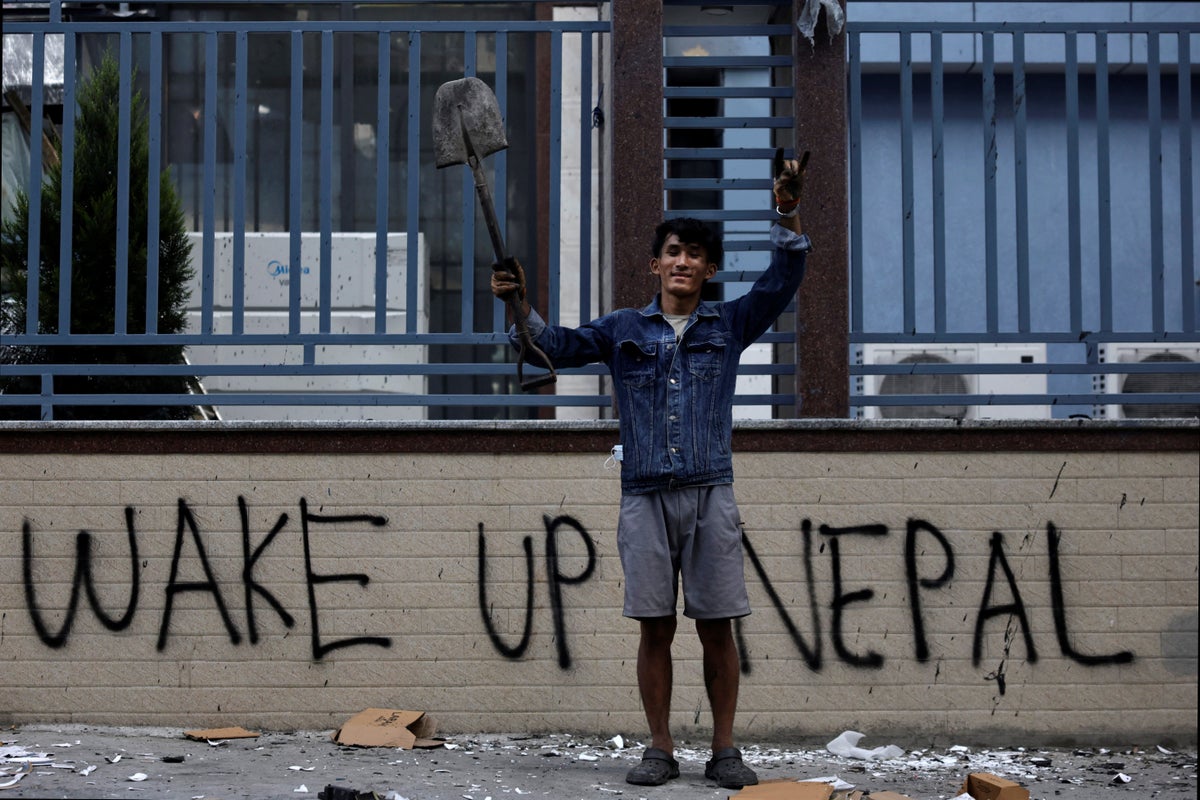Politics
Former Chief Justice Emerges as Interim Leader Amid Nepal Protests

Violent protests in Nepal have led to the resignation of Prime Minister KP Sharma Oli and claimed at least 31 lives, as demonstrators demand significant political change. The unrest erupted after the government banned 26 social media platforms, including Facebook, Instagram, YouTube, and X, in what was perceived as an attempt to suppress dissent. Young Nepalis, frustrated by ongoing issues such as corruption and unemployment, have emerged as the driving force behind these protests.
As chaos enveloped the political landscape, former chief justice Sushila Karki has been proposed as a candidate for interim leadership. Karki, who made history as Nepal’s first female chief justice in 2016, has gained support from many protest leaders. In an interview with Indian broadcaster CNN-News18, she confirmed, “When they requested me, I accepted.”
Government Collapse and Rising Tensions
The protests escalated over the weekend, leading to the collapse of Oli’s government. His decision to lift the social media ban failed to quell the unrest, prompting his resignation. Amidst the turmoil, protesters set fire to multiple government buildings, including the parliament and the presidential residence, leading to widespread damage. Smoke continued to rise from these locations by midweek, illustrating the extent of the violence.
Following these events, the military has taken a more prominent role in maintaining order. Soldiers are now patrolling the streets of Kathmandu, which have been relatively quiet after days of unrest. Many residents, fearing further violence, rushed to stock up on food supplies when the army briefly lifted a curfew. The main airport in Kathmandu, which had been closed, reopened for international flights, creating a rush of travelers trying to leave the country.
Public Response and Ongoing Challenges
The protests have not only resulted in casualties but also significant disruptions. According to police spokesperson Vinod Ghimire, over 15,000 prisoners escaped from two dozen jails during the unrest. While some have been recaptured, approximately 12,852 remain at large. This has raised concerns about public safety as the nation grapples with the aftermath of the protests.
Amid the chaos, individuals like Raj Kumar Bika, a chicken farmer traveling to India for business, shared their struggles. “It was a very difficult time for us. We had trouble just to get to the airport and back to the hotel hoping for flights, but finally, I have found a seat and am going to be flying out of Nepal,” he told the Associated Press.
The situation remains fluid as the country awaits clarity on its political future. With Karki emerging as a potential interim leader, the next steps will be crucial in addressing the public’s demands and restoring order in Nepal.
-

 Health2 months ago
Health2 months agoNeurologist Warns Excessive Use of Supplements Can Harm Brain
-

 Health2 months ago
Health2 months agoFiona Phillips’ Husband Shares Heartfelt Update on Her Alzheimer’s Journey
-

 Science2 weeks ago
Science2 weeks agoBrian Cox Addresses Claims of Alien Probe in 3I/ATLAS Discovery
-

 Science2 weeks ago
Science2 weeks agoNASA Investigates Unusual Comet 3I/ATLAS; New Findings Emerge
-

 Science1 week ago
Science1 week agoScientists Examine 3I/ATLAS: Alien Artifact or Cosmic Oddity?
-

 Entertainment4 months ago
Entertainment4 months agoKerry Katona Discusses Future Baby Plans and Brian McFadden’s Wedding
-

 Science6 days ago
Science6 days agoNASA Investigates Speedy Object 3I/ATLAS, Sparking Speculation
-

 World2 months ago
World2 months agoCole Palmer’s Cryptic Message to Kobbie Mainoo Following Loan Talks
-

 Science7 days ago
Science7 days agoNASA Scientists Explore Origins of 3I/ATLAS, a Fast-Moving Visitor
-

 Entertainment3 months ago
Entertainment3 months agoEmmerdale Faces Tension as Dylan and April’s Lives Hang in the Balance
-

 Entertainment4 months ago
Entertainment4 months agoLove Island Star Toni Laite’s Mother Expresses Disappointment Over Coupling Decision
-

 Entertainment2 months ago
Entertainment2 months agoMajor Cast Changes at Coronation Street: Exits and Returns in 2025









